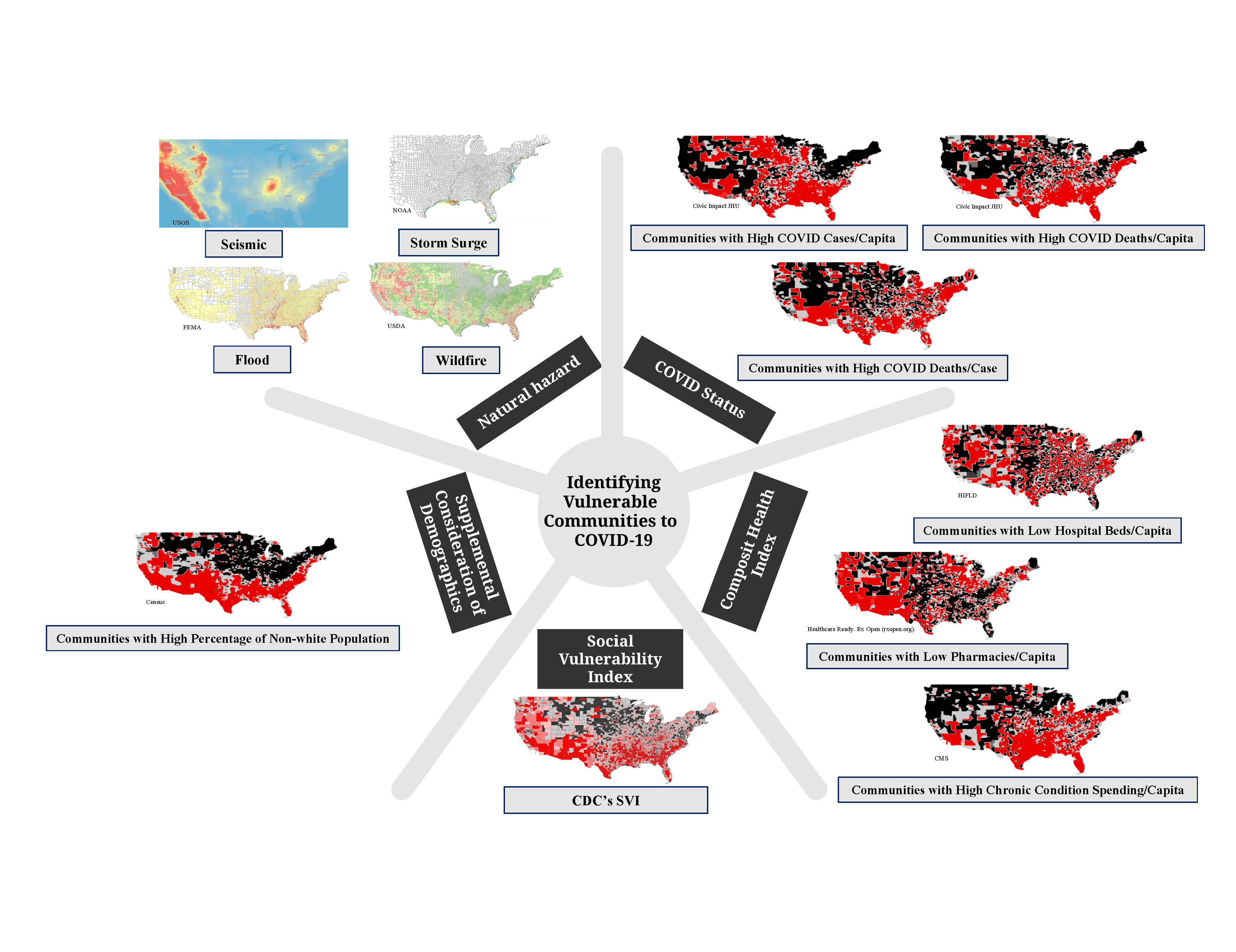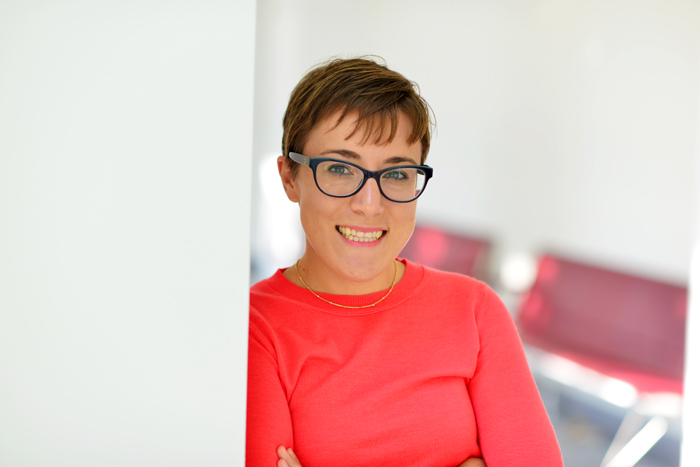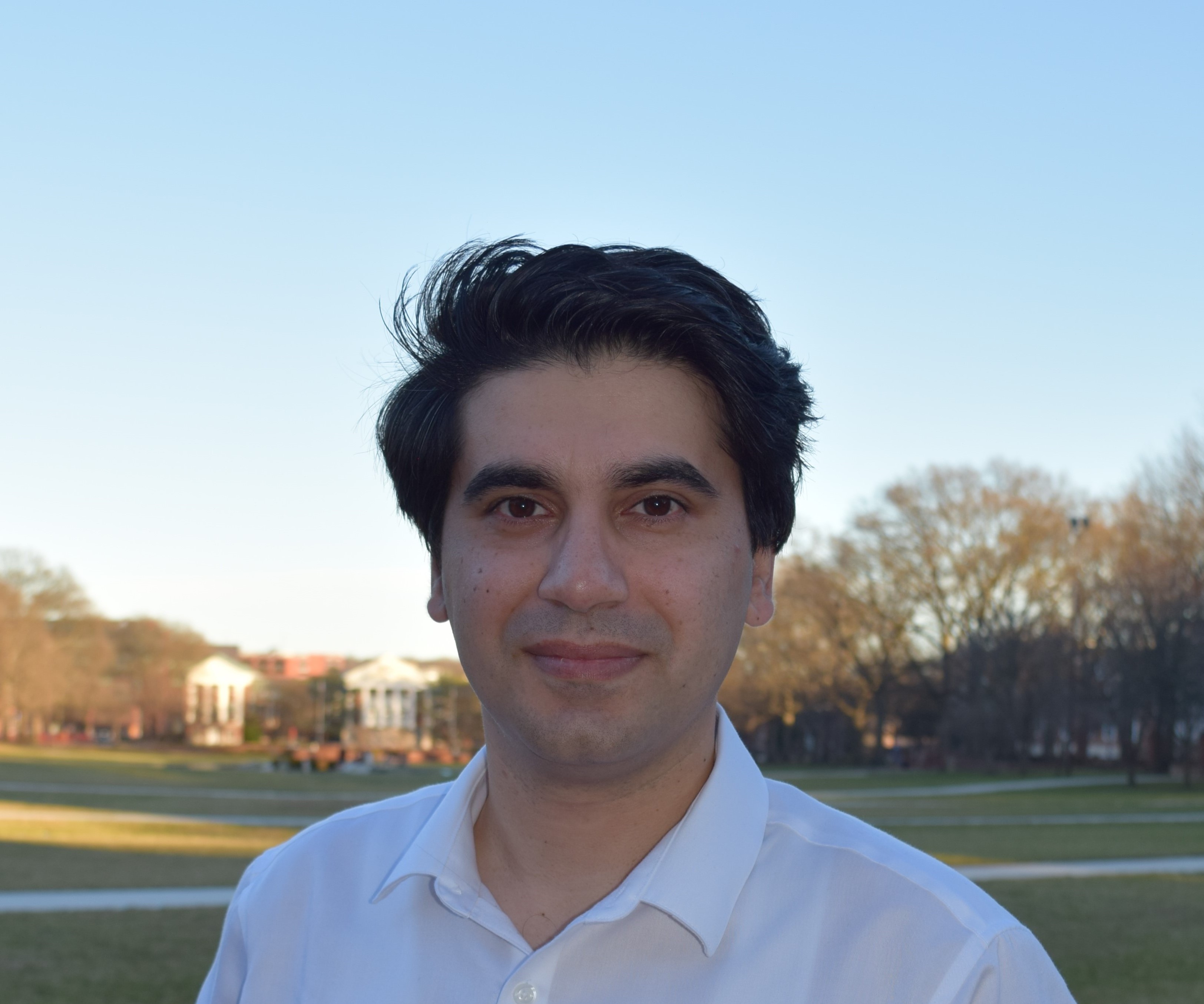Working Together to Show COVID's Impact on Communities of Color
Healthcare Ready is a DC-based national nonprofit organization that focuses on strengthening the United States’ healthcare supply chain preparedness and response before, during and after natural disasters and disease pandemics. The UMD researchers have been leveraging multiple databases for the project, including the Center for Disease Control’s (CDC) Social Vulnerability Index, and combining them to yield a more comprehensive picture.
While each individual database provides critical information, combining them allows researchers to spot correlations that might otherwise remain hidden, Faraji said. “By supplementing the CDC’s database with COVID case data and natural hazard maps developed by agencies like FEMA and the USGS, we can identify the relationship among the vulnerability factors, the pandemic’s impact, and location,” he said. “We’ve been able to develop a new index that allows us to pinpoint communities that have been hit especially hard by the pandemic.” The findings obtained by Bensi and Faraji are now being integrated into the larger Healthcare Ready research study, which also involves surveying the nation to find out which effects of the pandemic—from increased unemployment to decreased access to medical care—are causing the most disruption, and for whom. The entire project, expected to be completed in April 2021, is being supported by a grant from the Walmart Foundation.
Data engineering of this kind will have value even after the pandemic subsides, as the insights about community resilience can be generalized to cover a wide range of challenges, including the impact of natural events such as earthquakes or hurricanes, Bensi and Faraji said. They noted that this project is a prime example of how the work of engineers in academia can be leveraged to assist with real-world issues. “Too often, engineering researchers work in a bubble, without the reality perspective that an organization like Healthcare Ready brings,” Bensi said. “Ultimately, data engineering isn’t just a game with numbers. As with civil engineering in general, we’re studying the built environment—and that is something which involves people and societies in a very tangible way.” Top left: Geodatabases implemented to identify vulnerable communities to COVID-19. Click for full-size image.
Related Articles: February 19, 2021 Prev Next |
|


 The COVID-19 pandemic has had a broad, uneven impact on society, with communities of color being disproportionally affected. Bringing their data engineering expertise to the table, UMD
The COVID-19 pandemic has had a broad, uneven impact on society, with communities of color being disproportionally affected. Bringing their data engineering expertise to the table, UMD  “We started with the CDC’s index, which covers variables relating to socioeconomic status, minority status, housing and transportation, and household composition and disability,” Bensi said. “We added information about baseline overall health challenges in the community and about healthcare infrastructure, plus COVID case counts and death rates. In this way, we’re able to expand our understanding of social vulnerability as it pertains to these communities.”
“We started with the CDC’s index, which covers variables relating to socioeconomic status, minority status, housing and transportation, and household composition and disability,” Bensi said. “We added information about baseline overall health challenges in the community and about healthcare infrastructure, plus COVID case counts and death rates. In this way, we’re able to expand our understanding of social vulnerability as it pertains to these communities.” “We want to find the communities where the impacts of COVID have been most drastic and where we need to focus our efforts for the next year,” said Ryan Dadmun, a Healthcare Ready technical specialist who is involved in the project. “UMD’s research really helped us narrow down where those places are located.”
“We want to find the communities where the impacts of COVID have been most drastic and where we need to focus our efforts for the next year,” said Ryan Dadmun, a Healthcare Ready technical specialist who is involved in the project. “UMD’s research really helped us narrow down where those places are located.”